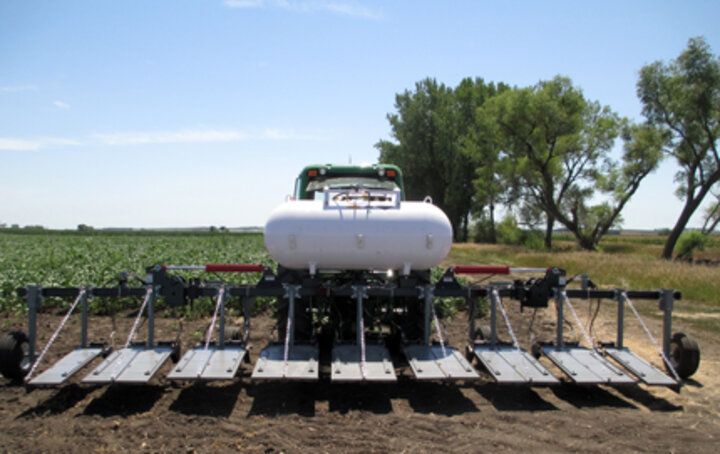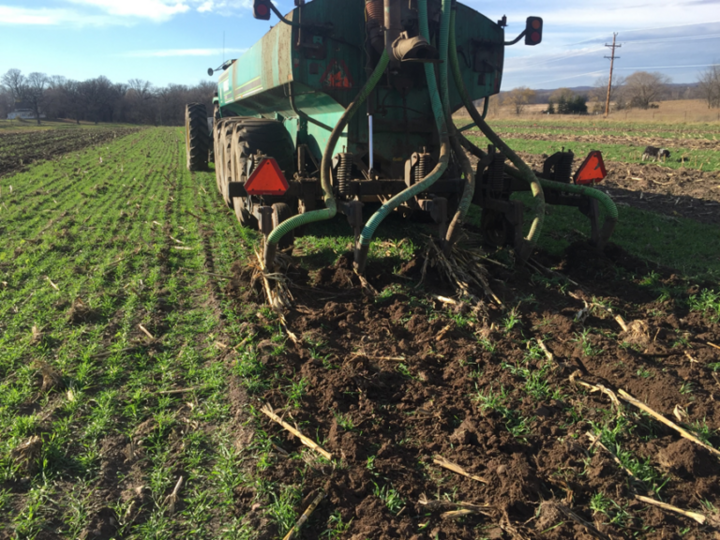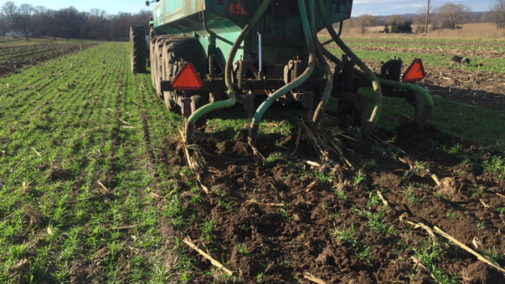
Dry the Weeds, Keep the Crops
Interest in organic farming is growing. However, controlling weeds without synthetic herbicides, as organic certification requires, is challenging. A story on the American Society of Agronomy website features work by University of Nebraska-Lincoln weed scientist Stevan Knezevic and colleagues to study propane-fueled flame weeding as an alternative to chemical weed management.
"Flame weeding sounds as if it means burning plants, but propane-fueled flame weeding systems do not set fire to plants," notes the article. "Instead, they control weeds by applying direct heat to plants. The heat rapidly raises the internal temperature of plant cells. The water in the cells expands and the cell walls burst, quickly drying out the plant tissue. Water loss and other heat-related changes kill or seriously damage the plant."
The researchers studied flame weeding techniques with seven crops: field corn, popcorn, sweet corn, sunflower, soybean, sorghum, and winter wheat. Insights from this research have now been compiled into a training manual that describes the most effective “recipes” for propane-fueled flaming as a weed control tool for these crops.
Continue reading the full story.

Effects of Liquid Manure Injection into a Winter Rye Cover Crop: On-Farm Trials
Les Everett, University of Minnesota Water Resources Center and Randy Pepin, University of Minnesota Extension
Nitrate levels above the drinking water standard of 10 ppm are frequently found in subsurface drainage tile water or groundwater below farm fields of the upper Midwest. Nitrogen comes from applied manure and fertilizer, along with natural mineralization of organic matter.
Winter cereal rye planted as a cover crop has been shown effective in capturing nitrate before it leaches from the root zone. We conducted on-farm trials in central and southern Minnesota to determine if a rye cover crop would capture significant root-zone nitrate in the fall and spring but release it in time to maintain yield in the subsequent corn crop.

